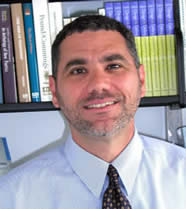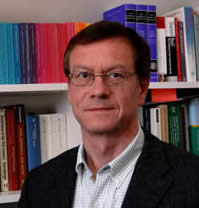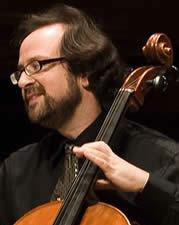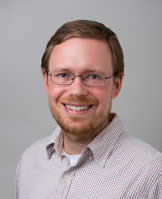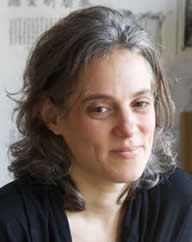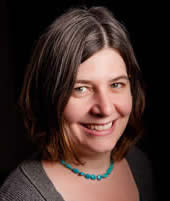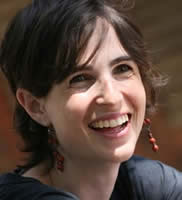2013-2014
Joseph Conte
Professor
English
501 Clemens Hall
Website
Email
Transnational Politics and the Post-9/11 Novel
In my forthcoming book, Transnational Politics and the Post-9/11 Novel, I suggest that literature after September 11, 2001 reflects a shift from the provincial politics of nation-states to that of transnational politics—issues that require adjudication across national, geographic, cultural, linguistic, religious, and racial borders. Descendants of the nineteenth-century political novels that countered the imperialist aspirations of the Nation State, the post-9/11 novels that I treat emerge in resistance to the global hegemony of the Market State and explicitly critique transnational politics that arise as a result of globalization. Don DeLillo’s Falling Man directly represents 9/11 through a World Trade Center survivor whose trauma and recuperation begins the “counternarrative” to terrorism. Orhan Pamuk’s Snow, set in eastern Anatolia, foregrounds the tensions and resistance between Islam and Turkey’s secular state as girls, forbidden to wear head scarves to school, commit suicide. J. M. Coetzee’s Diary of a Bad Year ventures a series of“strong opinions” on terrorism and the state that question the purpose of writing in an ethically confused and disputatious world. These and other works suggest that post-9/11 novels have engaged global politics and that it is mostly through novels that world citizens do their deepest thinking about themselves.
Joseph Conte is Professor of English at the University at Buffalo. His research interests include postmodern fiction, transnational literature and politics, fiction after 9/11, postmodern theory, the literature of immigration, poetry and poetics. He is the author of Design & Debris: A Chaotics of Postmodern American Fiction, which received the Elizabeth Agee Prize in American Literature from the University of Alabama Press in 2002, and Unending Design: The Forms of Postmodern Poetry, published by Cornell University Press in 1991. Book chapters and articles on a wide range of contemporary fiction and poetry have appeared in Modern Fiction Studies, Critique: Studies in Contemporary Fiction, The Cambridge Companion to Don DeLillo, The Holodeck in the Garden: Science and Technology in Contemporary American Fiction, and The Review of Contemporary Fiction, among others. He has been a SUNY Senior Fellow at the New York-St. Petersburg State University Institute of Cognitive and Cultural Studies in St. Petersburg, Russia and Visiting Professor in Comparative Literature at Capital Normal University in Beijing, China.
Andreas Daum
Professor
History
570 Park Hall
Website
Email
Alexander von Humboldt and the Emergence of the Modern World
My project features the world-renowned naturalist, traveler and scholar Alexander von Humboldt (1769-1859.) It situates Humboldt’s life, his vast oeuvre and public resonance in the center of some of the seminal processes that generated a more “modern,” and specifically a more global world since the 1760s. Humboldt, so my project argues, lived and articulated many of the intellectual, social and political transformations that societies from the Americas to Asia experienced between the so-called Enlightenment and the mid-nineteenth century. My project departs from a historicist understanding of biographies as coherent entities and incarnations, at best, of intellectual xceptionalism. Instead, I suggest exploring various Humboldt narratives. They can open windows into a world that was increasingly torn between nationalisms on the one hand and the spread of global webs of ideas, goods, ideas and people on the other. With the help of a biographical lens, we can capture the diversification and globalization of the “world’s worlds” that unfolded since the 1760s: from the birth of new nationstates to the advent of modern-style science, the global exploration of natural habitats, and the transnational configuration of knowledge.
Andreas W. Daum is a professor of history at the State University of New York at Buffalo. His research interest reach from the eighteenth to the late twentieth century. Daum focuses on transatlantic relations in this era, the history of knowledge and popular science, and the Cold War. He is currently working on a biographical study on Alexander von Humboldt (1769-1859). Andreas Daum is the author of Kennedy in Berlin (German 2003; English, with Cambridge University Press, 2008), a micro-history of the Cold War with an emphasis on the role of emotions as well as a monograph on popular science in the nineteenth century (1998, 2nd edition 2002). He has co-edited, with Cambridge University Press, a volume on the Vietnam War in international and comparative perspectives as well as a volume on Berlin and Washington, DC as capital cities in a comparative perspective. Daum is currently co-editing, together with James J. Sheehan and Hartmut Lehmann, a collection of essays and autobiographical texts émigré historians in the Cold War era, to be published by Berghahn Books in 2014.
Jonathan Golove
Associate Professor
Music
OVPR Fellow
214 Baird Hall
Website
Email
Theremin cello: Redevelopment of a Lost Instrument
For the past ten years, I have been involved in a project of recreating the theremin cello, an extinct musical instrument. The theremin cello represents the first attempt to harness the human potential to shape and manipulate electronic sound by means of the technical apparatus of the modern player of bowed string instruments. The project has included 1) testing and development of the instrument’s playing mechanisms, 2) development of a the techniques of playing the instrument, which had no established “methods,” 3) creation of a repertoire for the instrument, largely through transcription of earlier works not composed specifically for it, 4) performances and recordings of this repertoire and of the few works composed for the instrument, and 5) documenting the processes of involved in the first 4 areas, in the form of a monograph covering the subject. My threefold aims for further work are 1) travel for continued research into the history and as-yet undiscovered existing repertoire of the instrument, 2) an original composition and a number of transcriptions to be performed in a public concert at UB, and 3) a journal article on the development process of the instrument, representing a substantial step toward the completion of a monograph.
Cellist Jonathan Golove is a dedicated performer of both new and traditional works, as well as of improvised music. He has performed throughout the United States and Europe at venues including Carnegie Hall (Weill Recital Hall), Zipper Concert Hall in Los Angeles, and London’s Southbank Centre. He has been featured as cello soloist with the Buffalo Philharmonic Orchestra, Slee Sinfonietta, and New York Virtuoso Singers. One of only a handful of performers on the theremin cello, Golove has appeared as soloist with the Asko/Schoenberg Ensemble, London Sinfonietta, and International Contemporary Ensemble. He is also active as an electric cellist, particularly in the field of creative improvised music. He has performed and recorded with jazz groups including the Michael Vlatkovich Tryyo and Quartet, Ubudis Quartet, and Vinny Golia’s Large Ensemble, and made appearances at the Vancouver Jazz Festival, the Eddie Moore Jazz Festival (Oakland), and the International Meeting of Jazz and New Music (Monterrey, Mexico). He has recorded for the Albany, Centaur, Albuzerque, pfMENTUM, and Nine Winds labels, and his performances and interviews have been heard in broadcasts by numerous National Public Radio stations, as well as on Radio Nuevo León, West German Radio, CBC, and Radio France. His summer appearances include numerous festivals devoted to new works, including the Holland Festival (Amsterdam), Festival d’Automne (Paris), Lincoln Center Festival, June in Buffalo, and the Festival del Centro Histórico (Mexico City). Also an accomplished composer, Mr. Golove’s original compositions have been performed at venues including the Kennedy Center, Washington D.C., Venice Biennale, Festival of Aix-en-Provence, Lincoln Center Chamber Music Society II, and the Kitchen, and he has received awards and grants for his work from organizations including ASCAP, the Yvar Mikhashoff Trust for New Music, and Meet the Composer.
Walter Hakala
Assistant Professor
English
OVPR Fellow
727 Clemens Hall
Website
Email
Diction and Dictionaries: How Hindi and Urdu Lexicography Defined South Asia
Diction and Dictionaries is a multilingual and interdisciplinary book project documenting the role played by lexicographers in fashioning hindvi—a Persian term once used to describe the dialects spoken from the Indus River eastwards to the Bay of Bengal—into two competing linguistic registers: Urdu and Hindi. The first multilingual vocabularies in verse, composed as early as the fourteenth century, preserve efforts to record in written form a language that was spoken by many but infrequently transcribed or read. The linguistic equivalences established by these early texts reflect the exchange of materials across oceans and continents as well as efforts to incorporate new material realities into preexisting cognitive frameworks. Through the later nineteenth and twentieth centuries, however, advocates for Hindi and Urdu increasingly associated their “language” with competing religious and nationalist projects, vying to install only one as the official language of, first, British South Asia and, later, post-Independence India and Pakistan. By exploring the many intersections of lexicography with literature, politics, and sociology over a period spanning seven centuries, I argue that dictionaries, glossaries, and vocabularies constitute a vital record of both dominant ideological structures and emergent social and political formations over a broad swath of South Asia.
Walter Hakala is Assistant Professor in the Department of English at the University at Buffalo, SUNY. He teaches courses on South Asian literature, history, and culture in conjunction with the Asian Studies Program. His recent work reveals the importance of Indians as cultural and linguistic intermediaries in British expeditions to Afghanistan. He completed his Ph.D. in South Asian Regional Studies at the University of Pennsylvania in 2010 writing a dissertation on the history of Urdu lexicography. Prior to that, he completed an M.A. in Urdu literature (2004) from Jawaharlal Nehru University in New Delhi, India (his city of birth) and a B.A. in Asian Studies from the University of Virginia (2001). He has lived in India, Pakistan, and Morocco.
Joan Linder
Associate Professor
Visual Studies
OVPR Fellow
202 CFA
Website
Email
Love Canal: A Drawing Project
Love Canal: A Drawing Project- is a large, room-sized, landscape drawing of Love Canal, one of twenty-two toxic sites listed on the EPA’s website in Niagara and Erie counties. The history of our regional terrain, its use and misuse are an integral part of the economic development and collapse of the area. This project takes a slow-look at the man-made environmental atrocity that prompted the creation of “Superfund” and now exists like an unmarked grave, a mundane field grown over with wild flowers and a chain link fence. Close observation, fundamental to the drawing process, will reveal subtle and not so subtle clues to the history of the site. The studio, a cube truck, allows the artwork to be created on location. In a culture hyper-saturated by electronic imagery, using traditional materials, quill pens and bottles of ink—I situate myself in specific places and create large-scale images, exploring the sub-technological processes of embodied observation and mark making. Working with drawing on heroic scale this work situates itself between the tradition of American plein air and heroic landscape painters such as Albert Bierstadt, Asian scroll painting, and contemporary artists such as Rackstraw Downes and Dawn Clements. The work will culminate in an exhibition and the mobile studio will be open to the public while I am working.
Joan Linder‘s labor-intensive drawings transform mundane subjects into conceptually rich images. Life size representations of figures and objects explore themes such as the banality of mass produced domestic artifacts; the politics of war; sexual identity and power. Linder has exhibited throughout the US and in Brazil, Denmark, Germany, Israel, Japan and Korea at venues including the Queens Museum of Art; the Museum of Fine Arts, Boston; the Albright-Knox Art Gallery, Buffalo; and the Gwanjgu Art Museum, Korea. Awards include residencies at MacDowell and Yaddo and a Pollock Krasner Foundation grant. In 2012, Linder completed a permanent public artwork at the 71st Street D Line Station commissioned by NYC’s Metropolitan Transit Authority‘s Art for Transit program.
Deborah Reed-Danahay
Professor
Anthropology
380 MFAC
Website
Email
Bourdieu and Social Space
This project brings new perspectives to the work of a major figure in late-20th century social theory by illuminating his contributions to the “spatial turn” in the humanities and social sciences. The ideas of French sociologist Pierre Bourdieu (1930-2002) have been influential well beyond the social sciences in fields such as literary criticism, art history, and history. “Bourdieu and Social Space” is an interdisciplinary study of Bourdieu’s concept of social space. For Bourdieu, physical space is “reified social space”. He described social space as an arena for social positioning and a site for the coexistence of points of view. Bourdieu’s most famous concept is the habitus — a durable set of dispositions, shared with those of similar social origins. There has been a neglect in scholarship on Bourdieu of the crucial point that each habitus is relational and positioned differently in social space, with a unique trajectory. This book project fills a gap in knowledge about Bourdieu through its focus on his ideas of social proximity and distance, social positioning, and social visibility. It engages his work with discussions of mobility, transnationalism, and emplacement in contemporary social life.
Deborah Reed-Danahay is Professor of Anthropology at the University at Buffalo, where she has taught since 2008. She has conducted research in France and in the United States, and is preparing a new ethnographic research project in London. She currently works on issues of mobility, citizenship, nationality, and supranationalism. Her interests also include social theory and the ethnography of personal narrative. She is the author of Education and Identity in Rural France: The Politics of Schooling (Cambridge, 1996) and Locating Bourdieu (Indiana, 2005); and coauthor of Civic Engagements: The Citizenship Practices of Vietnamese and Indian Immigrants (Stanford, 2012). She edited the collection Auto/Ethnography: Rewriting the Self and the Social (Berg, 1997) and is co-editor of Citizenship, Political Engagement, and Belonging: Immigrants in Europe and the United States (Rutgers, 2008). She is a recent past president of the Society for the Anthropology of Europe and a Fellow of Magdalene College (Cambridge, UK) and the Royal Anthropological Institute.
Gwynn Thomas
Associate Professor
Transnational Studies
730 Clemens Hall
Website
Email
When a Woman Leads: Regendering Political Power and Leadership
For the past thirty years, scholars across many disciplines have studied how gender operates to define and distribute power and authority. However, the scholarship has mostly ignored the ways in which the presidency, as a political institution, has been gendered. Through a comparative study of the presidencies of Laura Chinchilla in Costa Rica and Michelle Bachelet in Chile, I analyze the ways in gender has shaped the meaning and social significance of the office of the presidency. I focus on how their presidencies reveal the connections among political power, gendered definitions of political leadership, and women’s political participation by making visible the often taken-for-granted connections between men, masculinity and political power embedded within political institutions. I do this by drawing on a range of sources from archival research into the gendered construction of the presidency to analysis of the legislative and executive agenda and interviews with elected and appointed leaders, civil servants, and activists. This rich base of research provides needed knowledge on how, under what conditions, and in what ways these two women impacted societal and cultural understandings of gender and political power. Put most broadly, this new project places the gendered office of the president within a broader cultural and historical perspective by examining the complicated strategies of changing gendered definitions of politics, political leadership, and political participation.
Dr. Gwynn Thomas is an Associate Professor of Global Gender Studies in the Department of Transnational Studies. Her research and teaching focuses on gender and politics in Latin America. Dr. Thomas teaches courses on feminist theory, women and politics in Latin America, global women’s movements, and the gendered development of nation-states. Her first book, Contesting Legitimacy in Chile: Familial Ideals, Citizenship, and Political Struggle, 1970-1990 (Penn State Press 2011), examines the mobilization of familial beliefs in Chilean political conflicts. A current book project, When a Woman Leads, analyzes the election women presidents in Latin America. Central to this new scholarship is an analysis of presidency of Michelle Bachelet, Chile’s first woman president, and her gender-equality agenda. Work from this ongoing study appears in the Journal of Women, Politics and Policy, The International Feminist Journal of Politics, and in a volume on the global rise of women to national office. She has also been published in the ISA Compendium Project, The Annals of the American Academy of Political and Social Science, and Latin American Perspectives. She received the Elsa Chaney Award given by the Gender and Feminist Studies section of the Latin American Studies Association (2007). Her research has been supported by grants from the Social Science Research Council, the John D. and Catherine T. MacArthur Foundation, the Tinker Foundation, the Baldy Center for Law and Social Policy, the Institute for Research and Education on Women and Gender, and the Humanities Institute.
Marion Werner
Assistant Professor
Geography
111 Wilkeson Quad
Website
Email
Global Displacements: Work and Development in the Dominican Republic and Haiti
The rise of out-sourcing and off-shoring led by transnational corporations in the 1970s incorporated millions of workers into global factories throughout the so-called developing world. These factories became icons of development, promising income, technology, progress and urban modernity. Events over the past decade – including major economic crises, liberalized trade with China, and the subsequent widespread consolidation of supply chains – are profoundly altering where goods get made and who makes them around the globe. What does the promise of development hold for the places and workers included in and excluded from these production circuits? Global displacements examines these shifts through a study of garment industry restructuring in the Dominican Republic, where 100,000 workers lost their factory jobs in the 2000s, and in Haiti, a renewed frontier for export manufacturing after decades of disinvestment. The project explores the categories of meaning and the strategies mobilized by owners, managers, workers, and state and development agencies to make sense of – and to reproduce livelihoods through — wrenching economic change.
Marion Werner is a geographer who works at the intersection of critical development studies, economic geography and feminist and post-colonial theory. She teaches and writes about uneven development, in particular the implications of contemporary restructuring of global industries for workers and communities, with a focus on Latin America and the Caribbean. Marion received her PhD from the University of Minnesota.
